Honor the Pope’s Legacy by Resolving the Global Debt Crisis
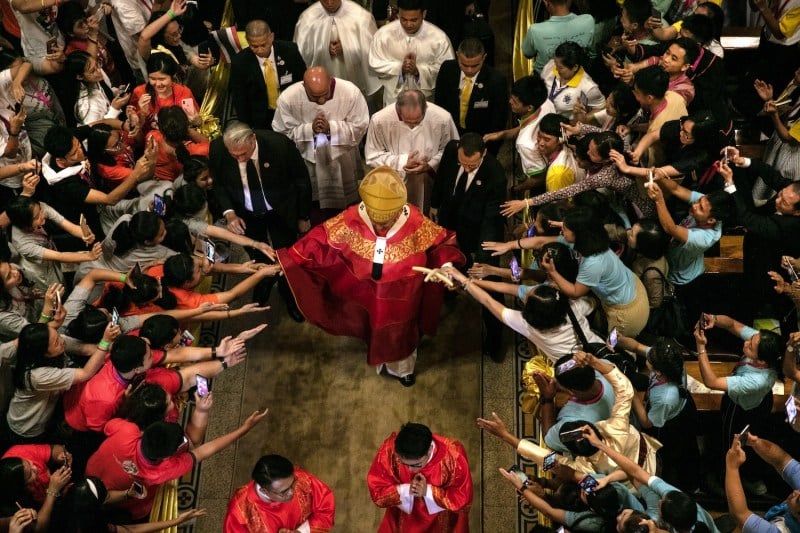
Honor the Pope’s Legacy by Resolving the Global Debt Crisis
Pope Francis wanted to dedicate himself this year to forgiving the injustice of debt.
Pope Francis walks out from Assumption Cathedral as Thai youth reach out to touch him in Bangkok on Nov. 22, 2019. Paula Bronstein/Getty Images
When Pope Francis stepped onto his balcony, looking out at crowds formed in St. Peter’s Square, it was often to share a message of compassion. As the head of the Catholic church, he embraced a role as a champion of human rights—and one that was left vacant to him in the absence of other global leaders of conscience. Throughout the 12 years of his pontificate, he issued poetic appeals for mercy to be shown to the victims of war, refugees, migrants, prisoners, and, perhaps most of all, the poor.
The tributes paid to the late pope this week recalled his commitment to people in poverty. As a young man in Buenos Aires, he became known as “the bishop of the slums,” ministering marginalized communities in the Argentine capital’s shantytowns. Upon being elected pope, he chose for himself the name Francis in a tribute to his hero, St. Francis of Assisi, who spurned his wealth. And this year, he wanted to dedicate himself to lifting the burden of debt from the world’s poorest countries.
When Pope Francis stepped onto his balcony, looking out at crowds formed in St. Peter’s Square, it was often to share a message of compassion. As the head of the Catholic church, he embraced a role as a champion of human rights—and one that was left vacant to him in the absence of other global leaders of conscience. Throughout the 12 years of his pontificate, he issued poetic appeals for mercy to be shown to the victims of war, refugees, migrants, prisoners, and, perhaps most of all, the poor.
The tributes paid to the late pope this week recalled his commitment to people in poverty. As a young man in Buenos Aires, he became known as “the bishop of the slums,” ministering marginalized communities in the Argentine capital’s shantytowns. Upon being elected pope, he chose for himself the name Francis in a tribute to his hero, St. Francis of Assisi, who spurned his wealth. And this year, he wanted to dedicate himself to lifting the burden of debt from the world’s poorest countries.
Every quarter-century, the Catholic Church marks a jubilee year as a moment of spiritual renewal and a call for justice. It’s a time when debts are forgiven, prisoners are released, the land is left to rest, and society can have a reset. Just as the faithful seek the mercy of God when it comes to their sins, Francis said in his New Year’s message that there is also forgiveness to be sought among people—“so that no person, no family, no people may be crushed by debt.”
Resolving the global debt crisis is an opportunity to honor the late pope’s legacy. More than half of the world’s countries are struggling with “unjust and unsustainable debt,” according to Caritas Internationalis, the Catholic Church’s network for humanitarian relief and development. And more than 3.3 billion people—nearly half of humanity—live in countries that spend more on interest payments than on education or health.
The debt crisis has reached a point, the late pope said, where wealthy countries should “acknowledge the gravity of so many of their past decisions and determine to forgive the debts of countries that will never be able to repay them.” It wasn’t a question of “generosity,” he added, but “a matter of justice.”
While many developing countries have long carried the weight of debt, a crisis has engulfed them in recent years. To withstand the economic pressures of the pandemic, many low-income countries took out loans at what were then low interest rates. With the war in Ukraine and a panicked response in Western capitals to inflation, the cost of borrowing rose steeply, sending some countries over the edge. There were defaults in Ghana, Zambia, and Sri Lanka. Others, like Pakistan, are teetering on the brink, held back only by International Monetary Fund bailouts that mete out harsh austerity.
Many of the most indebted countries are also the most climate vulnerable. They have contributed proportionately little in terms of carbon emissions and yet pay the heaviest price when it comes to their consequences. The resurgence of tariffs and the withdrawal of international assistance now threaten to inflict further suffering. The debt burdens will grow heavier and the default cliffs will move closer. Lives and livelihoods will be lost.
The sovereign debt crisis is also a development crisis. The interest payments alone cut deep into budgets, slicing away funds that should instead be invested in schools, clinics, and climate action. It’s a crisis that enriches private creditors, who engage in predatory practices, and corrupt governments, who take on debts to siphon them off and transfer the pain of repayments onto their people. Rather than default on their creditors, governments are defaulting on their people.
The pope’s appeal to cancel or reduce these debts can translate into action through the Jubilee Commission he appointed, with more than 30 experts. Next month, they’re due to present a report with ambitious but concrete proposals for the reform of the international financial architecture that would break the pernicious choice between servicing debt on the one hand and pursuing development and climate action on the other.
The commission’s work could also be reinforced by other efforts, including legislation that’s taking place in New York state to eliminate the usurious rates of interest imposed on debtors, or thwart the threat of so-called vulture funds that swoop in to buy debt on the cheap, only to litigate for its full repayment. Indebted countries could also bond together in solidarity, creating a collective bargaining bloc much the way creditors do through the Paris Club.
In today’s increasingly transactional world, it would seem unlikely that creditor countries would volunteer to write off their debts. As neoliberalism crumbles and the United States pulls back from shared commitments, we are also seeing what Francis once decried as the “globalization of indifference.” Smaller, weaker countries may fall through the cracks, abandoned to their fate.
What’s at stake is our common humanity. And what makes Francis’s appeal necessary is the moral framework that he applies. The debt and climate crises also represent a moral crisis. There are moral obligations that are owed to people, to the Earth, and to future generations. At a time when empathy is being cast as a weakness, or limited to just a few, Francis’s words and ideas constitute a rare source of strength.
Binaifer Nowrojee is the president of the Open Society Foundations.
More from Foreign Policy
-

An illustration shows a line of large shopping carts facing down a small Donald Trump figure holding two shopping bags. The stars of China’s flag are in the upper left corner. Why Beijing Thinks It Can Beat Trump
China’s elites have a new confidence in their own system.
-

U.S. Army Chief of Staff Randy George speaks to U.S. soldiers at the Hohenfels Training Area in southern Germany on Feb. 6. A Drawdown of U.S. Forces in Europe Is All but Certain
Here’s how the Pentagon can rebalance its approach to the continent without sacrificing U.S. interests.
-

University of California, Los Angeles students, researchers, and demonstrators rally during a “Kill the Cuts” protest against the Trump administration’s funding cuts on research, health, and higher education in Los Angeles on April 8. Why Authoritarians Attack Universities First
A Yale professor and expert on fascism talks about why he’s leaving the United States under Trump.
-

Dwight D. Eisenhower looks over a piece of paper while sitting on a couch as Robert Cutler looks over his shoulder. How Generations of Experts Built U.S. Power
And now Trump is throwing it all away.

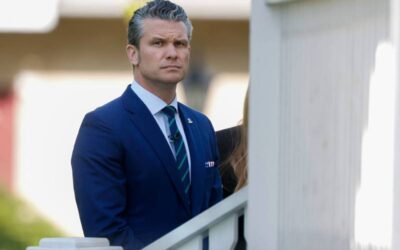


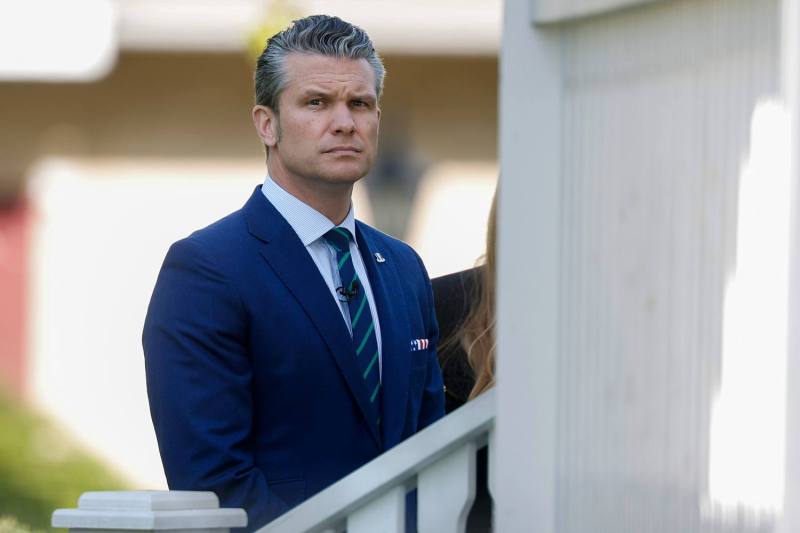

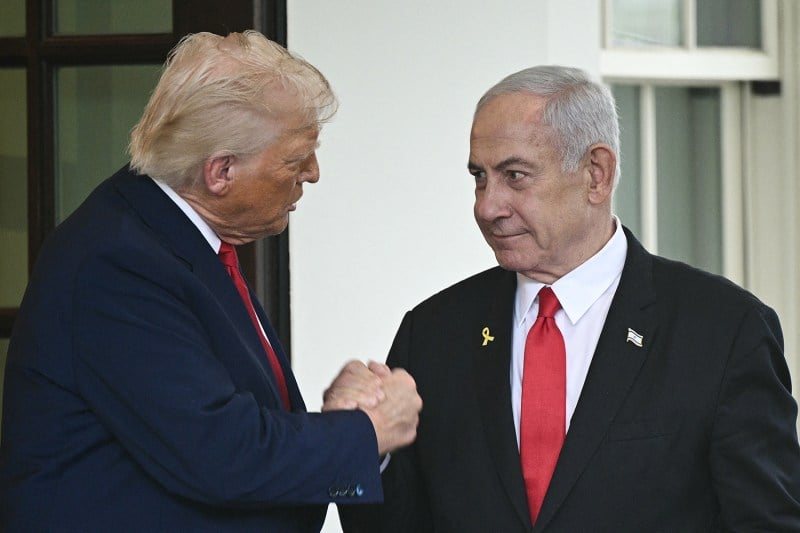
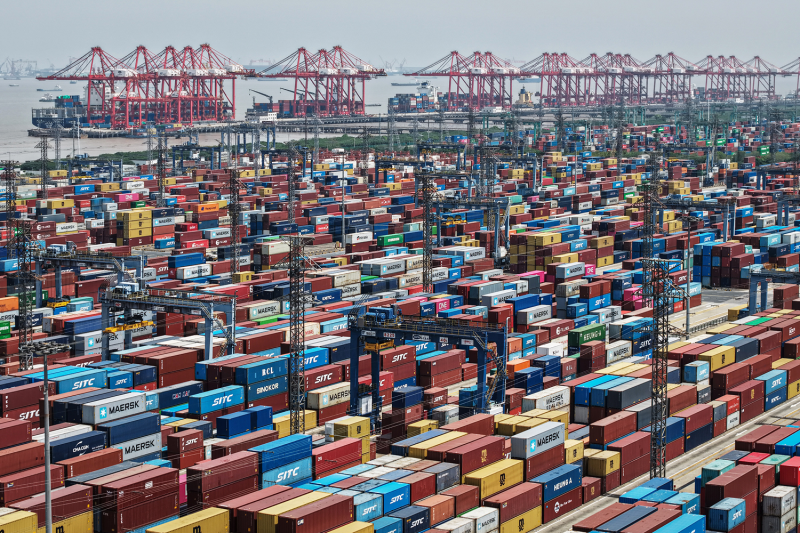
Join the Conversation
Commenting on this and other recent articles is just one benefit of a Foreign Policy subscription.
Already a subscriber?
.
Subscribe
Subscribe
View Comments
Join the Conversation
Join the conversation on this and other recent Foreign Policy articles when you subscribe now.
Subscribe
Subscribe
Not your account?
View Comments
Join the Conversation
Please follow our comment guidelines, stay on topic, and be civil, courteous, and respectful of others’ beliefs.
Change your username |
Log out
Change your username:
CANCEL
Confirm your username to get started.
The default username below has been generated using the first name and last initial on your FP subscriber account. Usernames may be updated at any time and must not contain inappropriate or offensive language.